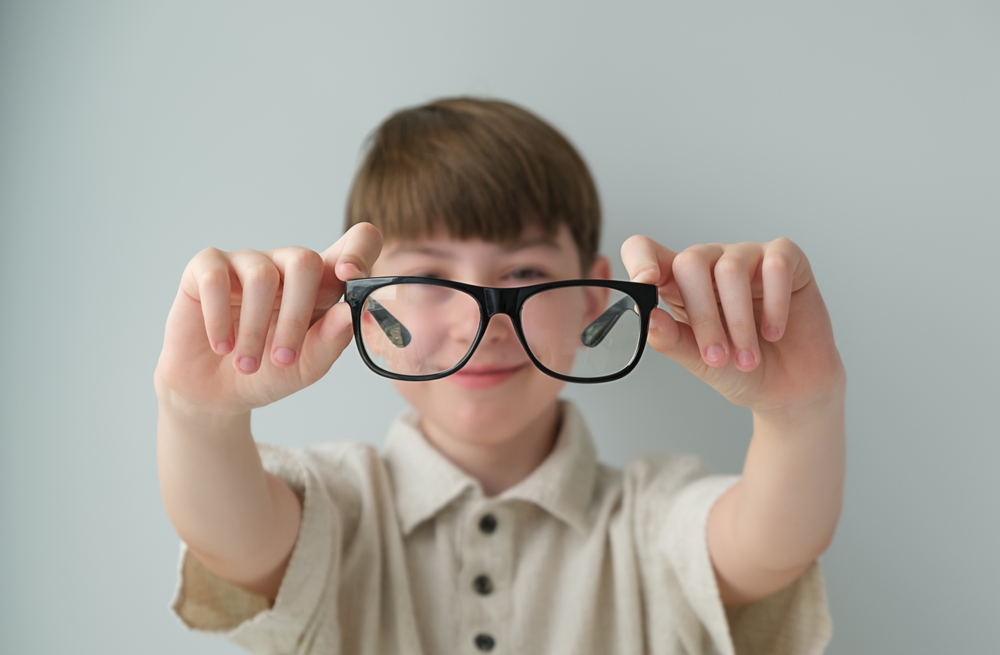
In today's digital age, it's increasingly common to see children and young adults developing nearsightedness, or myopia, earlier than previous generations. Myopia is more than just a need for glasses to see far-away objects—it’s a progressive condition that, if unmanaged, can lead to more severe vision issues later in life. At 730 North Optometry, we emphasize the importance of early detection and proactive management to help slow myopia progression and protect long-term eye health.
What is Myopia?
Myopia is a refractive error where the eye grows too long, causing light to focus in front of the retina instead of directly on it. This makes distant objects appear blurry while near vision remains clear. Myopia typically develops in childhood and can worsen as the eye continues to grow. While glasses or contact lenses can correct vision temporarily, they don’t slow the progression of the condition.
Why Early Detection Matters
Detecting myopia early is critical. Studies show that children with myopia tend to experience rapid changes in their vision. This progression can increase their risk for serious eye problems as they get older, such as:
• Retinal detachment – a serious condition that can lead to blindness if untreated.
• Glaucoma – high myopia increases the risk of developing glaucoma.
• Myopic maculopathy – a condition that affects the central vision due to changes in the retina.
These conditions can be prevented or mitigated with early intervention and ongoing myopia management.
Signs of Myopia in Children
Parents should watch for early signs of myopia in children, including:
• Squinting to see distant objects
• Holding books or screens close to their face
• Complaints of headaches or eye strain
• Reduced performance or interest in activities requiring clear distance vision, such as sports
If you notice any of these signs, scheduling a comprehensive eye exam with 730 North Optometry can help detect myopia early and set up a plan for management.
Effective Myopia Management Options
There are several effective ways to manage myopia and slow its progression. At 730 North Optometry, we offer tailored treatment options based on each patient’s unique needs:
• Orthokeratology (Ortho-K): Specially designed contact lenses worn overnight gently reshape the cornea, providing clear vision during the day without the need for corrective lenses. Ortho-K has been shown to slow myopia progression effectively in children.
• Atropine Eye Drops: Low-dose atropine drops are a promising option to reduce the progression of myopia in children. Regular application helps slow the eye's elongation, reducing the risk of high myopia and its associated complications.
• Multifocal Lenses: Multifocal glasses or contact lenses provide different lens powers to help with both near and distance vision, helping to slow myopia's progression by reducing eye strain.
How 730 North Optometry Can Help
At 730 North Optometry, we take a comprehensive approach to myopia management. Our experienced team not only assesses vision but also looks at lifestyle factors, genetic predispositions, and visual habits that may contribute to myopia progression. We believe in educating parents and children on healthy visual habits, such as limiting screen time, taking frequent breaks, and spending more time outdoors—factors that can help manage and even prevent myopia.
Protecting Vision for the Future
Early myopia detection and proactive management make a meaningful difference in a child’s quality of life, academic performance, and long-term eye health. By addressing myopia early, we can help preserve your child’s vision, ensuring they are set up for a future with clear, healthy sight.
To learn more about myopia management, schedule a consultation with 730 North Optometry at our office in Libertyville, Illinois. Call (847) 362-9900 to book an appointment today.








